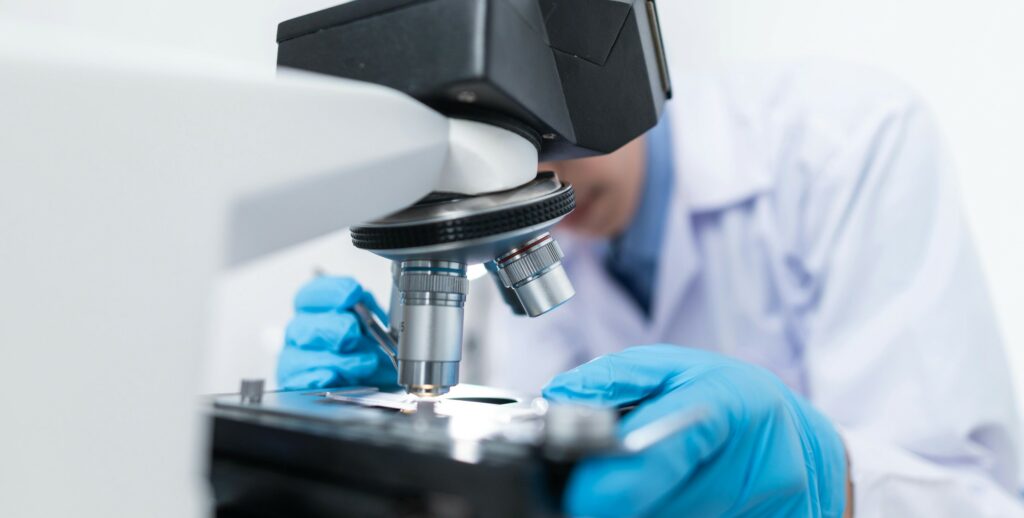There are several reasons why rashes, lumps and lesions around the groin area can appear, ranging from allergies or other infections to something much more serious.
Rashes can be painful and very uncomfortable. Discovering the cause and treating it is important to protect against any long-lasting damage to your health.
If you have recently developed a rash in the groin and thigh area, firstly consider any recent activities, changes in behaviour or existing conditions you may have. Often these rashes will be caused by skin irritation and can easily be treated.
Common minor causes of groin rash
Having a rash in the groin area can be an uncomfortable and embarrassing experience, so understanding what might have caused it is important.
Common causes of groin rash include:
- Build-up of sweat after exercise
- Irritation after shaving
- Allergy to new types of soap, shower gel, shampoos, deodorants or lotions; latex condoms or lubricant; or synthetic underwear material or washing powder
If you have recently started using a new product, try eliminating it to see whether the rash goes away. If not, it could be caused by something more serious.
Other causes of groin rash:
- Infecting parasites
- Fungal infections, such as ringworm
- Skin conditions, such as psoriasis or lichen planus
- Sexually transmitted infections (STIs)
- Autoimmune diseases, such as lupus or Crohn’s disease.
You should visit a Better2Know sexual health clinic if you think the rash could be caused by an STI. They can provide advice and treatment for any infections that might have been contracted. It is important to get tested, even if you haven’t noticed any other symptoms.
Which STIs can cause rashes?
Some STIs can cause rashes, sores, ulcers or blisters, especially around the groin and genital area.
Herpes
Herpes is a sexually transmitted infection (STI) that can cause rashes around the groin and genital area. The rash will usually appear as red bumps or blisters in the affected area. These blisters may be painful and itchy. Eventually, these blisters will burst and become sores.
A Herpes infection is more likely to spread when the outbreak occurs. Herpes Simplex Virus Type 1 (HSV 1) usually causes Oral Herpes, and Herpes Simplex Virus Type 2 (HSV 2) usually causes Genital Herpes.
Scabies
Scabies is a skin infestation caused by tiny mites called Sarcoptes scabiei. These mites burrow into the skin and lay eggs. Symptoms of a Scabies infection include itchy skin and a rash that can resemble acne or pimples, featuring small pink bumps, blisters, or scales. The rash can be confined to a specific area or spread throughout the skin.
Scabies is different from other infections as it can spread through prolonged skin-to-skin contact such as holding hands or hugging, and not just through sexual contact. Although it is rare, sharing clothes, towels, or bedding with an infected person can also result in the spread of Scabies.
Syphilis
In the primary stage of a Syphilis infection, one may notice sores, also known as chancres, around the genitals, anus, rectum, or vagina. As for the secondary phase, a rash could appear on various parts of the body, such as the palms of the hands or soles of the feet. This rash may seem rough and red or reddish-brown and could resemble a prickly heat rash, small blotches or scales, cold acne, or pustules. Moreover, the secondary phase could lead to moist warts in the groin or white patches in the mouth.
For a more comprehensive list, check out our blog on what STDs can cause a skin rash.
What to do if you notice symptoms
If you have noticed symptoms on your skin and suspect an STI, consider Better2Know’s Blemish Screen. This is a specially designed STI test for those with rashes, lumps, warts, blisters or blemishes around the groin area.
Speak to us in confidence
Have you recently developed any worrying skin symptoms or are you simply looking for more information? If you are worried about your sexual health, you should consider having an STI test to gain peace of mind and protect your health.
You can contact our highly trained sexual health advisors on our 24/7 phone line. Our team will be happy to answer any questions you may have and organise an appointment at a clinic near you. You can also send a message to our advisors using our live webchat, or book your appointment online.
Sources
[1] HEALTHDIRECT.GOV.AU: Male groin – irritation and infection
[2] HEALTHLINE.COM: What causes groin rash and how is it treated?
[3] UOFMHEALTH.ORG: Rashes or sores in the groin





